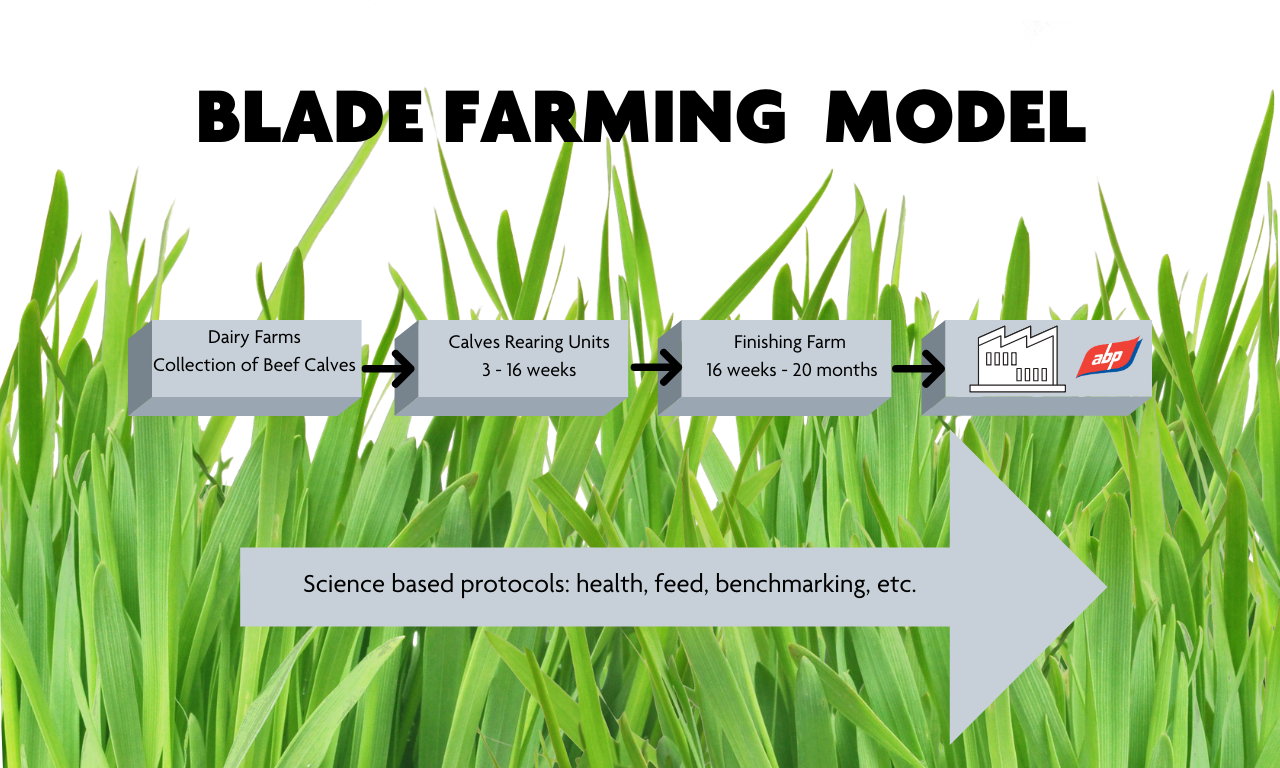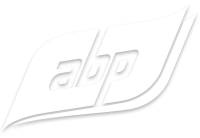Blade Farming
Blade Farming is the application of science-based protocols with a view to achieve a more sustainable beef production model. By exclusively using beef cattle from the dairy herd, we can deliver a more sustainable and environmentally-friendly approach which also offers significant economic efficiencies and real animal welfare benefits. ABP brings over 10 years of experience of operating the Blade Farming production model, boasting a granular understanding of sustainability in beef production.
ABP’s approach to blade farming
We use beef calves that are sourced from the dairy farms, rearing them to exceptionally high standards at dedicated cattle rearing units. At 16 weeks these calves are sent to beef finishing farms where the rearing process continues to the same exacting protocols. This approach means that the animals are presented to market at c20 months some 4/ 5 months sooner than average.
Dedicated support
ABP’s dedicated Blade Agriculture Manager provides all the necessary technical support and acts as a link between the dairy farms, rearing units, and finishing farms. A team of veterinary surgeons are also on hand to offer support and advice so that farmers can work to the advised health protocols.
Scientific data is used to improve animal health, feed intake and overall animal performance and analysis. For example, it has helped to identify the genetic markers associated with an animal’s disposition to produce tender meat. The Meat Science Centre at the University of Bristol, and other international meat science developments, have influenced the scientific approach adopted by Blade Farming.

What are the benefits of Blade Farming?
The benefits of Blade Farming include:
Better use of farm resources:
The ABP Blade rearing model does not involve high capital expenditure and a number of farmers use existing sheds on their farms.
Better farm throughput:
The average age of finishing cattle through the Blade system is 22.5 months, some 4.5 months less than cattle reared through alternative systems. This improves farm throughput, overall efficiency and as a consequence, drives more sustainable meat production. The process also helps to improve our environmental sustainability through less consumption of resources such as water, feed and energy.
Improved Animal Health:
The scientific protocols improve the overall health of the animals and gives participating farmers every chance to maximise their returns, should they adhere to the protocols.
CPD:
All farmers are assisted in developing management practices aimed at improving productivity, sustainability, efficiency, health and welfare across the cattle production cycle.
